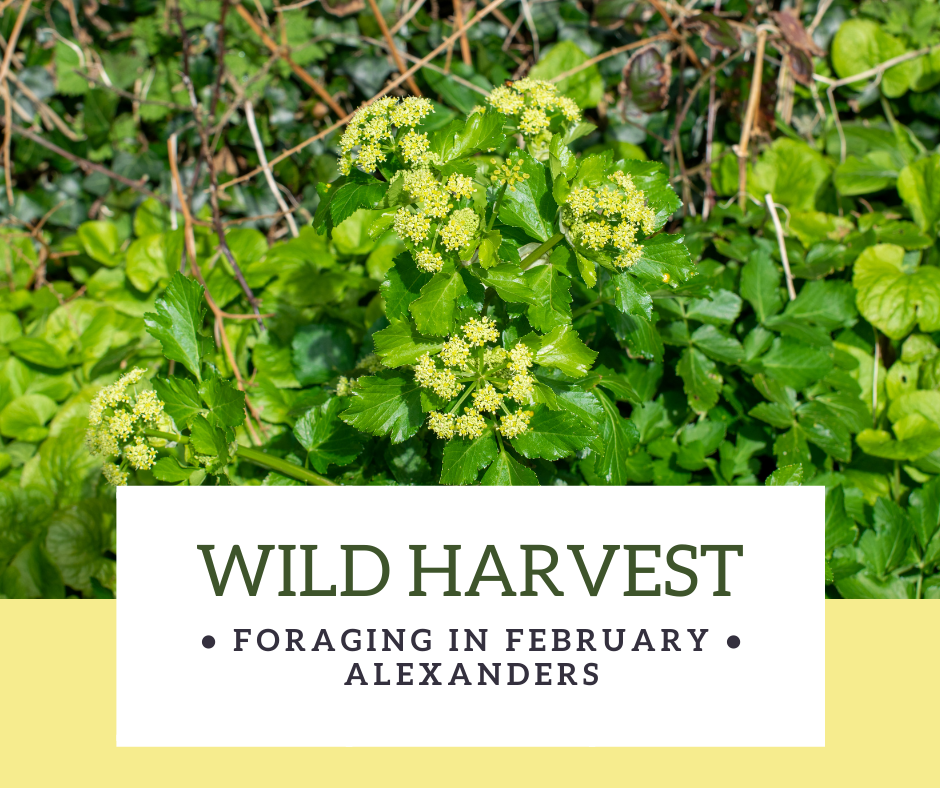
As we move towards spring, Alexanders can be found in hedgerows, by the sea and along woodland edges.
Like many plants that we now think of as weeds, Alexanders was once popular in kitchen gardens. It is often found growing in ancient monastic ruins where it was once cultivated as a kitchen garden herb by monks. It isn’t much cultivated now but still thrives in hedgerows, woodland edges and by the sea.
Alexanders, like Ground Elder can be invasive and so are great plants for foraging as they are in plentiful supply and even heavy foraging is unlikely to remove the plant completely. Again, like Ground Elder, Alexanders was brought to Britain from the Mediterranean by Romans. They called it the ‘rock parsley of Alexandria’. Another common name is horse parsley.
They are also good for those new to foraging as, while it is also true that Alexanders are umbellifers and that a number of the umbellifers are deadly poisonous, Alexanders are easy to identify. The leaves are glossy, bluntly toothed with broad segments. The leaves have a distinctly purple veined sheath at their base, and grow in groups of three. The leaves, if you look closely, have tiny white hydathodes (glands that exude water on the teeth or tips of a leaf). These are not found on any other umbellifer in Britain. As always, if you are ever unsure of your identification, don’t eat the plant!
The young stems and leaves taste similar to celery and can be blanched or steamed to add to soups, broths and stews. Alexanders was once known as ‘black potherb’ because of its black, spicy seeds. The flowers are also spicy and can be added as a spice and decoration to salads. The buds of the plant can be eaten pickled or fried.
Like nettles, Alexanders was a traditional plant for cleansing the blood at the start of the year and used as a digestive herb for strengthening the stomach. Due to the high vitamin content and it’s availability by the shoreline, seafarers used it to treat scurvy. Herbalists can still use it to relieve stomach and urinary problems.
Like many plants in the Apiaceae family, Alexanders exudes aromatic oils with a pungent, sweet smell that attracts a wide range of pollinating insects.
If you are going to forage, please follow the simple guidelines:
- Always be sure you are sure of the plant before you pick it and never eat any plant you are unsure of.
- Leave plenty behind for wildlife.
- Make sure you have permission to pick
- Only pick where plants are plentiful

